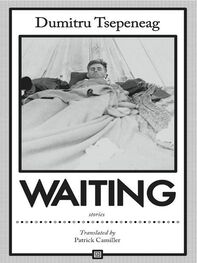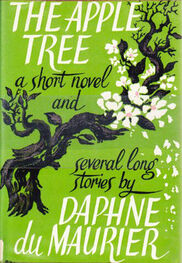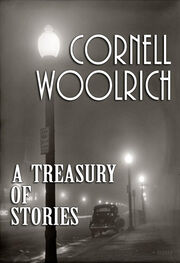Dumitru Tsepeneag
Waiting: stories
The present volume contains a selection of my “youthful” writings (1958–1968), dating from before I embarked upon my first novel ( Vain Art of the Fugue ). I have selected and ordered them in such a way as to correspond to the different stages of life. We spend our entire lives waiting for something, though we never know what. We don’t dare tell ourselves that what we are waiting for is death. Read in order, from beginning to end, I would like to think that these texts might hint at a kind of biography. Not mine, but anyone’s.
I lost patience and went out first. As I waited for the car to arrive, I stamped my feet on the pavement in front of the building. Then Father came out, looking very serious, hands behind his back, in that new navy-blue pinstriped suit. He told me to calm down, to stop bucking around like a baby lamb, but there was nothing reproachful in his voice and he didn’t even look at me as he said it. He straightened his hat, checked his tie, and looked again at the street door. He began to walk up and down, hands still behind him, his head slightly bowed, while I, feeling bored, looked at the tram stop and thought that it wasn’t so far to the photographer’s: just a few meters past the grocery, in an old house that had escaped demolition, across from the place with those nice shiny boxes that people called coffins. It was quite possible to go on foot, but, no, the Princess didn’t like the idea of that. “I’ll get my train dirty,” she said, lifting herself up on tiptoe, so that Father called a taxi. Gigi had a smile on his face and seemed to be looking out the window all the time; he was even taller than usual, and that annoyed me, so I didn’t wait for the elevator. When the car arrived there was no sign of Father: he’d gone back up to make them get a move on. The driver pulled up and asked me if he had the right address. “A wedding, is it?” he asked, with a smile and a nod. I hurried to the stairs, but just then the Princess and Gigi, Father and Aunt Luiza, walked out of the lift; they were all laughing and talking at the same time. They took no notice of me, and didn’t want to take me with them. It doesn’t matter, I said. I let them go on ahead, then dashed off on my own. I knew the way, so I got there before them. At first I was afraid that the photo shoot had gone too quickly and everyone had already left, but that wasn’t possible. I still asked the photographer if they’d been there. He scratched his goatee with his long black fingernails and gave me an uncomprehending look. I described my sister to him: how she’s fat from eating cakes all day, how she’s always putting on airs and graces, how she started to look down her nose at me once she went to university. She wants to get married, I told the photographer. At first Father was against it: he told her to finish studying first, to put something in her head, then they’d see about it. (At that point he’d caught me thumbing my nose at her and banged his fist on the table: “Get out of here, you snotty little brat!”) The Princess was beside herself for days on end, crying all the time and, instead of cakes, eating nothing but those hard candies you crunch between your teeth. I also told the photographer about Aunt Luiza, who moved in with us after Mother died. The man kept his eyes on me and stroked his beard, with fingers that looked as if they had been dabbed with walnut stain. God knows what had happened to the other wedding guests. I wanted to go inside and wait for them there, but that goat of a photographer patted me on the head and pushed me back into the street. I ran across to the store with the coffins, to see what was new there, and was nearly run over by a Pobeda; the driver slammed on his brakes and swore at me, but when I stuck my tongue out he shut up and drove off. There was a lovely new coffin in the window, so small that I don’t think even I would have fitted into it. I’ll have to tell Dan about it at school tomorrow; he likes coffins too, and those wreaths with wide black ribbons and white lettering. But, unlike me, he’s never been to the cemetery, and he’s thinner than I am. If we start wrestling with each other, I trip him and make him fall and it’s all over — only the Princess doesn’t believe me and laughs, throwing her head back so that her throat wobbles like a frog’s. She cackled like that when Gigi came round the first time and played backgammon with Father; I was on Gigi’s side because he sometimes let me roll the dice for him and I always got doubles, until Father lost his temper and told me to put the dice in the shaker. It was then that she burst out laughing. After Gigi left, I asked Father to play backgammon with me — just one game wouldn’t have hurt — but he refused and told me to stick to my own games. What could I do? I took the backgammon board and played it on my own, left against right, and the Princess started to laugh again. Look, there she is on the other side of the street, laughing as she climbs out of the car, while Gigi stands stiff as a poker and smiles like a streetlamp. Father and Aunt Luiza are also there on the pavement, as well as another fat person who looks as if she could be a woman. A car has pulled up, and another. Everyone is happy and flapping their arms, as if trying to rise into the air — what a strange crowd! I waited for them all to squeeze into old Goatee’s studio, then quickly crossed the street and peered through the window of the half-open door. The Princess was wearing a white dress with all kinds of frills, and had a weird crown on her head. She was flushed, and smiling rather than laughing — as pretty as a picture. Gigi was so tall that the photographer looked up at him as at a streetlamp, his beard shaking as he danced around the couple. They kept growing, in his eyes, as though someone were stretching them by yanking on their hair. I sneaked in, taking care that Father didn’t see me, and huddled motionless in a corner. The photographer pulled a red curtain aside, turned on some large lamps shaped like car headlights, then went out the back and returned with his camera and tripod, which towered over me. My sister turned a deeper red, Gigi white as a sheet, while Aunt Luiza took out a handkerchief to wipe away her tears. The others made a terrible din, talking and laughing at the top of their voices, until Goatee finally said: “Silence, please, we’re starting to shoot!” I stood on tiptoe to see better, but there was no need, because the bride and groom rose half a meter from the ground and were being pulled higher and higher by strings. No one said anything; only Aunt Luiza sobbed her heart out. The photographer was half-hidden in a box behind the camera, so that only his hands were visible. It became quiet, and a few lowered their heads as if guilty of something — or ashamed. They held themselves stiff. The couple rose higher and higher: you could see their shoes by now, his as large as black boats tapering at the prow, hers smaller and partly covered by the hem of her dress. A shrew of a princess, look how fat, and now rising like a balloon. I cast a sidelong glance at Father: his eyes were moist. Aunt Luiza was still sobbing away, and another lady was crying more softly. Gigi’s head was within two inches of the ceiling. The photographer popped out from his box, raised his arms, and yelled: “What are you doing, my friends? You’ve gone too high: I can’t only shoot your lower halves. What a business!” His shouts shook the others from their reverie. I jumped out from my place and was the first to try to catch them by the legs, but I failed. “Give him a hand, will you,” the photographer snapped.
Читать дальше






